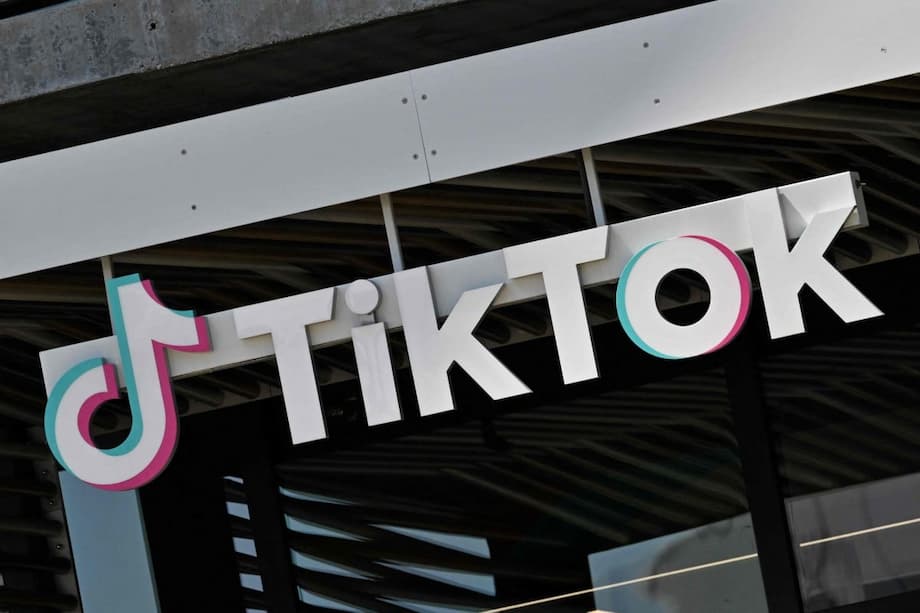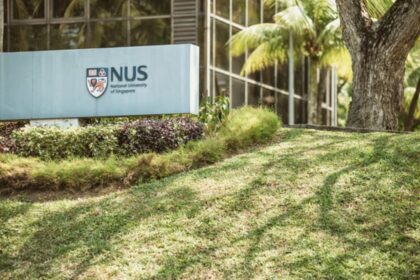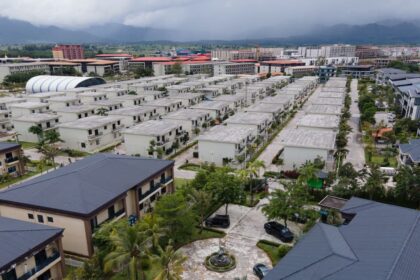Why Malaysia is taking on TikTok and Meta
Malaysia has summoned TikTok’s top executives to the national police headquarters, Bukit Aman, after officials accused the platform of responding too slowly to police investigations into false claims and other harmful posts. Communications Minister Fahmi Fadzil said he escalated concerns directly to TikTok chief executive Shou Zi Chew. He added that Meta, the owner of Facebook, Instagram and WhatsApp, will also be called in to explain the spread of illegal and immoral content across its services.
The move follows a high profile case in which a man on TikTok falsely claimed to be a pathologist involved in the probe of a teenager’s death. Authorities say they sought key information from the platform to aid the investigation, and argue the response took too long for a case under active police scrutiny. The meeting, set for Thursday, will include the Inspector General of Police and the Attorney General, an unusual line up that underlines the stakes.
Fahmi, who has made online safety and misinformation a priority for his ministry, said platforms must treat police requests with urgency. He has repeatedly stressed that Malaysian law applies to global services that reach users in the country.
Communications Minister Fahmi Fadzil said: “We cannot allow such an attitude.”
Malaysian agencies have reported a sharp rise in harmful online content. In June, the minister said Facebook, TikTok and YouTube removed 159,518 pieces of content flagged for online gambling, scams, cyberbullying and false claims. About half related to online gambling, roughly a quarter to scams, with smaller shares involving cyberbullying and fake news. Authorities also list child sexual abuse material, grooming and posts touching on race, religion and royalty as areas of concern.
The case that set off alarms
The recent incident involving a fake medical credential, posted in the context of a widely followed death investigation, became a lightning rod. Police sought account details and other records they argue are essential to prove intent and trace the origins of the content. The ministry says delays weakened enforcement and risked fueling speculation while the investigation was ongoing.
What will be on the table at Bukit Aman
At the meeting, officials are expected to press TikTok on two fronts: faster response times to legally valid requests, and stronger moderation of content that violates Malaysian law. The government has reminded companies that national laws apply to services operating in the country. That includes the Communications and Multimedia Act, which prohibits the transmission of content that is obscene or false or that threatens public order. Cases can also involve the Penal Code and the Sexual Offences Against Children Act.
Police typically want two types of action. One is to remove or restrict the reach of posts that appear to break the law. The other is the timely disclosure of account and network information that can identify suspects, stop ongoing harm, or preserve evidence. Officials say the response from TikTok in the pathologist case did not match the urgency of the situation. They want a clear escalation path for serious cases, named contacts, and agreed timelines.
TikTok and Meta did not immediately respond to requests for comment from news outlets covering the summons. The companies commonly argue that they must balance safety with privacy and due process, especially when requests cross borders.
Meta under scrutiny for child safety
While TikTok faces questions over response speed, Meta is being summoned over child safety and illicit content. The ministry has cited disturbing materials linked to paedophilia on Facebook and WhatsApp. Local reports point to an online group known as Geng Budak Sekolah that circulated indecent content targeting children. Tech focused outlets also referenced content flagged during a cybercrime operation called Operation Pedo.
Policing Meta’s services is complicated by end to end encryption on WhatsApp. That technical choice prevents Meta from scanning message contents in real time. Law enforcement typically relies on user reports, group takedown orders, and metadata such as account identifiers, phone numbers and timestamps. The government argues that faster cooperation and better reporting from platforms can still help, even when content itself is encrypted.
New measures Malaysia is weighing
Beyond the immediate meetings, the government is studying a requirement for identity verification for all sales and advertising on social media. Officials say this would curb fake accounts, deepfakes and fraud by tying commercial activity to verified identities. They point to Singapore, where platforms and marketplaces use stronger verification for sellers, as a model Malaysia could adapt.
Identity checks could involve national ID or passport verification, bank level know your customer procedures, or verified business registrations. Supporters argue this would make it harder for scammers and repeat offenders to reappear under new accounts. Critics warn that verification can raise costs for small sellers and create new privacy risks if data security is weak.
Malaysia is also preparing to anchor its stance in regional policy. The Kuala Lumpur Declaration on the Safe and Responsible Use of Social Media Platforms for ASEAN is slated for adoption at the bloc’s 47th summit in October. The document is expected to set shared objectives for content governance and cooperation with law enforcement across Southeast Asia.
How moderation and legal requests work
Content moderation at scale is a mix of automated systems and human review. Platforms use detection models to catch likely violations early, then escalate sensitive cases to trained teams. Government requests arrive through dedicated legal portals. Companies assess jurisdiction, the scope of law, and whether requests meet their policies before acting. That process can be fast during emergencies, or slow when requests lack detail or require international validation.
What police typically seek
Investigators usually ask for subscriber information, IP logs, device fingerprints, and records of post creation and deletion. They may issue preservation requests to stop data from being purged while a warrant is processed. When data is stored outside the country, mutual legal assistance channels are often used to validate and transmit records. The more precise the request, the easier it is for a platform to respond quickly.
Why speed matters
Timely action can limit harm. Quick takedowns disrupt copycat posts. Accurate account data helps police act before suspects vanish behind new accounts or discard devices. In volatile cases, prompt steps lower the risk of vigilantism or panic. When companies move slowly, false narratives harden and evidence can be lost.
The regional and global picture
Malaysia’s push fits a wider pattern. India banned TikTok in 2020 over security concerns. Indonesia has tightened rules around digital commerce and content, pressing platforms to register locally and respond to orders. In Europe, the Digital Services Act places strict duties on very large platforms like TikTok and Meta to assess risks, remove illegal content promptly, and publish regular transparency reports or face large penalties. Governments in the region are increasingly willing to summon executives and set response time expectations.
Industry and rights concerns
Rights groups warn that broad rules can be misused, chilling legitimate speech or silencing critics. The category of content touching on race, religion and royalty is sensitive in Malaysia, and past removals have drawn debate. Transparency from both the government and platforms, along with clear appeal mechanisms for users, can reduce the risk of overreach. Regular public reporting on takedown volumes and legal demands helps build trust.
Officials counter that the focus is on clear harms: scams, child exploitation, targeted harassment, and false claims that interfere with investigations or public safety. The minister has said platforms must comply with Malaysian law and respond quickly when crimes are involved. Dialogue with companies will continue, and authorities plan to summon other services if needed.
What happens next
TikTok’s leadership is due at Bukit Aman on Thursday, in a meeting that will also involve the police chief and the attorney general. People familiar with past engagements expect concrete steps such as named escalation contacts, tighter response benchmarks for urgent cases, and commitments to improve moderation of high risk categories. Meta is set for a similar session focused on child safety. If cooperation falls short, the government could consider binding directives, financial penalties, or restrictions on specific features. For now, officials say the priority is faster cooperation and compliance across the industry.
Both TikTok and Meta had not issued immediate public responses to the summons. The companies have said in previous statements that they remove illegal material, work with law enforcement, and invest in safety teams, while also protecting user privacy and free expression.
Key Points
- Malaysia summoned TikTok’s leadership to Bukit Aman over slow responses to police probes into false claims and harmful posts.
- A recent viral case, involving a fake pathologist claim linked to a teenager’s death, triggered the escalation.
- Minister Fahmi Fadzil called TikTok’s CEO directly and said the government will not tolerate slow cooperation.
- Meta will be summoned over child safety issues, including reports of paedophilia related content on Facebook and WhatsApp.
- Officials are studying identity verification for social media sales and ads to curb fake accounts, deepfakes and fraud.
- The Kuala Lumpur Declaration on social media safety is slated for ASEAN adoption in October.
- Authorities want faster data disclosure, clearer escalation paths, and stronger content moderation from platforms.
- TikTok and Meta did not immediately comment, while the government signals more meetings with other platforms ahead.












